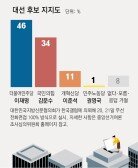Two or Three `Yellow Dust` Are Expected in This Month
Two or Three `Yellow Dust` Are Expected in This Month
Posted April. 09, 2002 09:11,
Yellow dust alerts were issued nationwide, except Jeju Island, for the first time on 8th due to a huge yellow dust storm that has filled the air over the Korean peninsula from Sunday night.
The pollution rate of the particulate matter per cubic meter of air (PM10) reached 3,311 micrograms in Hannam Dong, Yongsan Gu, Seoul, at 3 a.m., on 8th. It is 47 times higher than annual average levels (70 micrograms per cubic meter) and the highest record of ever measured.
When the pollution rate of the PM10 reached 1,042 micrograms, which was higher than the level for operating `the level 3 alert` (1,000 micrograms per cubic meter), at 1 a.m. yesterday, Seoul City issued the level 3 alert, the highest level of warning. All other cities and provinces respectively issued the first, second, and third level of alerts between 6-11 a.m.
Many elementary schools shortened school hours, and 40 domestic flights were cancelled due to the yellow dust storm. However, no school was closed because the alerts were issued after the schools had started.
Originating from the Inner Mongol area in China, this yellow storm passed Manchuria and North Korea and rapidly came to South Korea between Sunday night and Monday early morning. It moved to southeastwards with strong winds.
Therefore, the yellow dust storm has subsided from the afternoon, and the visibility was increased in the Metropolitan area. However, the pollution rates of the PM10 were highly increased in the Middle and South Provinces. Seven regions, including Seoul, Daegu, Daejeon, Gangwon, North and South Chungcheong, and North Gyeongsang Provinces, were placed the level 3 alert. The level 3 alerts were changed to the level 2 alerts in some regions.
Meanwhile, the Korea Meteorological Administration expected that, “There will be two or three times of the yellow dust storms during this month because drought is continuing in northern China and strong low pressures are expected to pass this region frequently.”
Ho-Gab Lee shchung@donga.com · gdt@donga.com







